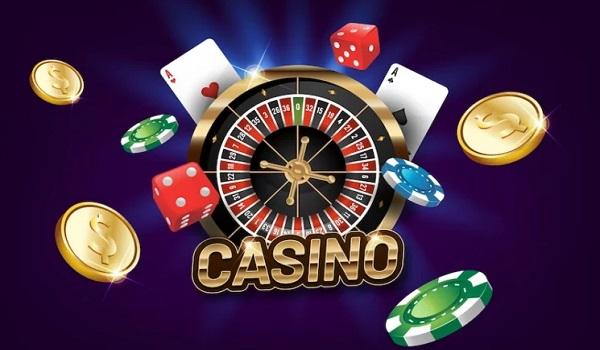Speed is everything in the world of gaming. Whether you’re playing an action-packed battle royale, a high-stakes racing game, or a skill-based trivia challenge on zupee, the ability to react quickly can mean the difference between winning and losing. While gaming speed is often associated with reaction time, it also involves strategy, muscle memory, and efficient decision-making.
If you’re a serious gamer looking to improve your speed and play faster, this guide will provide essential tips and strategies to elevate your gameplay.
Understanding Why Speed Matters in Gaming
Speed plays a critical role in different types of games, including:
- First-Person Shooters (FPS) – Quick reflexes and fast aim are necessary for survival.
- Racing Games – Every second counts, and reaction time to turns and obstacles is crucial.
- Strategy & Trivia Games – Thinking quickly under pressure leads to higher scores and better rankings.
- Competitive Games (e.g., Zupee) – Fast decision-making helps in skill-based games where every move affects the final outcome.
The ability to process information, make decisions, and execute actions quickly is a skill that can be developed with practice and the right techniques.
Training Your Reflexes for Faster Reactions
A fast reaction time is a key component of playing at a high level. To improve your reflexes:
A. Play Reaction-Based Games
Certain games are specifically designed to improve reaction speed. Try:
- FPS games with fast-paced action
- Rhythm games that require quick button presses
- Puzzle and trivia games that test quick thinking
B. Use Reaction Time Training Apps
Apps like Aim Lab or Reaction Trainer can help you develop faster responses. They test how quickly you can recognize patterns, click targets, and make split-second decisions.
C. Optimize Your Gaming Setup
- Reduce Input Lag: Use a high-refresh-rate monitor (144Hz or higher) and a low-latency mouse or controller.
- Minimize Distractions: A clutter-free gaming space helps improve focus.
Enhancing Muscle Memory for Faster Gameplay
Muscle memory is what allows professional gamers to execute complex actions without thinking. The more you practice, the more your hands will instinctively respond to in-game situations.
A. Learn Efficient Button Combinations
Every game has optimal control settings. Learn the fastest ways to:
- Reload weapons in FPS games
- Execute special moves in fighting games
- Answer questions quickly in skill-based games like Zupee
B. Repeat Actions Until They Become Second Nature
- Spend time practicing key moves and reflexes.
- Use training modes or single-player missions to refine your muscle memory.
Mastering Quick Decision-Making
Decision-making is just as important as reaction speed. Fast decisions lead to quicker actions, which improve overall gameplay efficiency.
A. Learn Game Patterns
- Understanding enemy behaviors, map layouts, and game mechanics will help you predict situations rather than react blindly.
- In trivia or strategy-based games, knowing common patterns can help you make quick choices.
B. Train Under Pressure
- Play time-limited modes or speed challenges to force yourself into quicker decision-making.
- Challenge yourself to answer trivia questions faster on competitive gaming platforms.
Improving Your Mental Focus for Faster Play
Speed is not just about physical reaction time—it also involves mental agility.
A. Practice Mindfulness and Concentration
- Meditation and breathing exercises can improve focus.
- Avoid multitasking while playing; keep your mind fully engaged in the game.
B. Reduce Mental Fatigue
- Take short breaks to avoid burnout.
- Stay hydrated and eat brain-boosting foods like nuts, berries, and dark chocolate.
C. Develop a Pre-Game Routine
- Warm up with quick reaction drills or practice rounds before competitive play.
Optimizing Your Hardware for Faster Gaming
Your gaming performance depends heavily on the speed of your hardware and internet connection.
A. Upgrade to a Fast System
- Use a gaming PC or console with a high refresh rate and low input lag.
- If playing on mobile, ensure your device has sufficient processing power.
B. Optimize Your Internet Connection
- Use a wired connection instead of Wi-Fi for more stable speeds.
- Close background apps that might slow down your game.
Playing Smart: Combining Speed with Strategy
Being fast isn’t just about reacting quickly—it’s also about thinking ahead.
A. Predict Opponent Moves
- In multiplayer games, predict where opponents will move rather than reacting to them after they act.
- In skill-based games, anticipate question patterns and prepare answers ahead of time.
B. Balance Speed with Accuracy
- Don’t sacrifice accuracy just to play faster.
- Ensure that every move you make is intentional and well-timed.
Practicing Consistently for Long-Term Speed Gains
Consistency is key when trying to improve gaming speed.
A. Set Goals
- Work on reducing your reaction time by milliseconds each week.
- Improve your response rate in trivia games by challenging yourself to answer within shorter timeframes.
B. Track Progress
- Use performance tracking tools to measure improvement over time.
- Keep a record of high scores, accuracy rates, and decision-making speed.
C. Challenge Yourself
- Play against high-level opponents to push your limits.
- Enter tournaments or online competitions to test your speed under real conditions.
Conclusion
Speed is a critical factor in competitive gaming, and mastering it requires a blend of reflex training, muscle memory development, decision-making, and mental focus. Whether you’re playing an FPS, a real-time strategy game, or skill-based games like Zupee, the ability to react and execute actions quickly can dramatically improve your chances of winning.
By following these strategies—practicing consistently, optimizing your hardware, and training your mind—you’ll not only play faster but also smarter. So start refining your speed today, and take your gaming skills to the next level!
